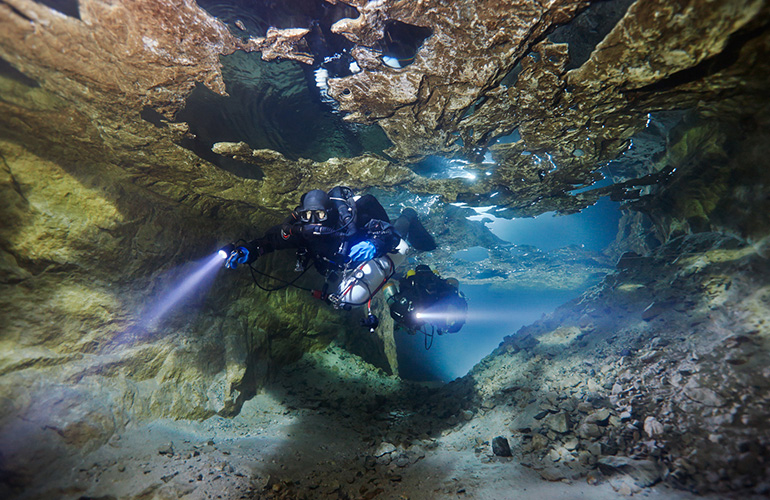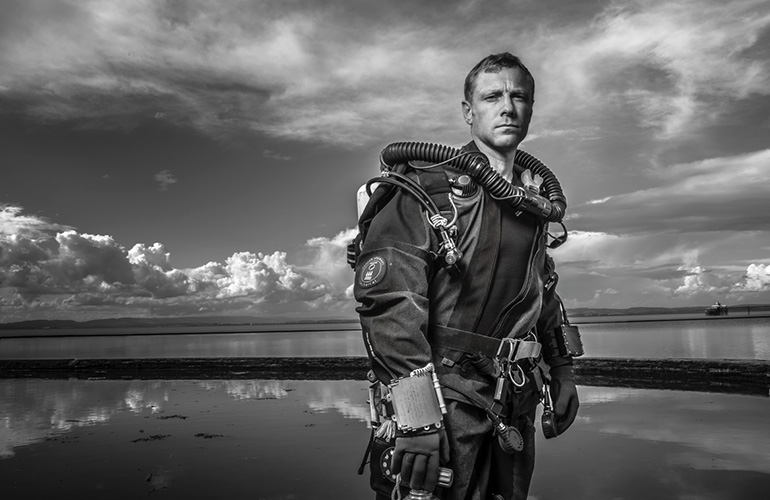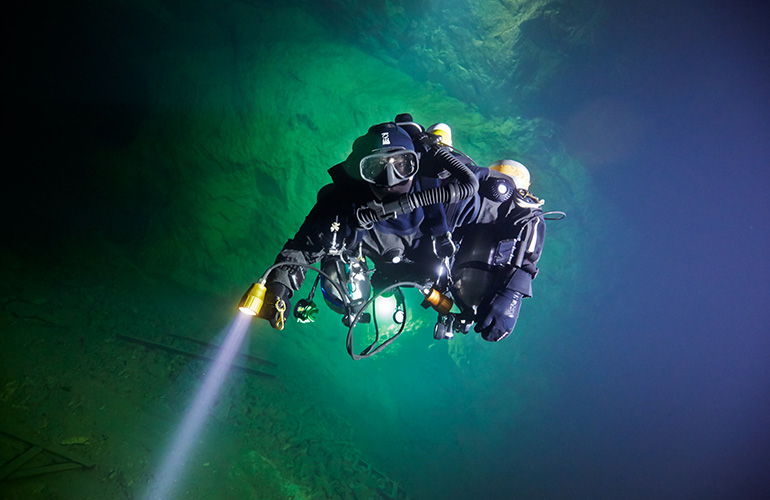Technical diver and commercial dive supervisor Andy Torbet began exploring the ocean when he was 12 and has been at it ever since. He’s explored sunken cities, elaborate cave systems, deep wrecks and reefs. We caught up with Andy just before he left for an expedition and asked what divers should do to stay dive-ready in the off-season. Here are his 7 off-season tips.
Don’t have an off-season
My personal recommendation for the off-season is not to have one. Even if you dive only very occasionally, and the dives are shallower and shorter than normal or even in a pool, it will help. They will keep those essential skills from fading and make sure your kit is working and familiar. Most diving incidents and accidents happen every year in spring when people come back to diving after taking the winter off. Just a quick dive a few times over the winter will help you stay on top of your game.

Andy explores Finland's Ojamo Mine, where Suunto tests its dive products. © Janne Suhonen
“Most diving accidents happen in spring when people come back to diving after taking the winter off.”
Diving’s not physical, but it’s also physical
Diving is not primarily a physical performance sport but it is still physical. Recent medical investigations supported by incident reports have shown that your body is put under pressure even on simple dives and the more physically robust we can make ourselves the safer we are.
Why fitness matters
Ask yourself this: if two divers had identical diving skills, experience and attitude would you rather dive with the fit one or the out of shape one? Which diver do you think would have the greater chance of having a problem and which would you rather count on? Being physically fit can help in nearly all situations and is particularly important in some situations, from finning against a strong current, towing a casualty on the surface or just hauling oneself out of the water in a less than ideal condition.
“Being physically fit can help in nearly all situations.”

© Martin Hartley
Take care of your body
It’s worth keeping a basic level of activity going in the off-season to keep you healthy for the new season. I know a lot of divers who go hill walking in winter just to keep their bodies active. But it’s also a time to look at doing some work on those problem areas you’ve been putting off (because you were too busy diving). Perhaps it’s a sore shoulder or a weak knee. Make sure you start the new season in the best shape possible. That way you can dive more, enjoy it more and be capable of more.
Core strength is key
Diving kit is heavy so spend some time working on your strength, and especially core strength. I’ve seen a number of dives cut short because someone injured their lower back getting kitted up. You can spend the spare time in the off-season getting into the habit so when you start diving again these exercises have become part of your routine.
“I’ve seen a number of dives cut short because someone injured their lower back getting kitted up.”
© Janne Suhonen
Maintain and take stock
I don’t have an off-season, but the winter is less busy so I use that period to service equipment, look at what needs replacing or go over the last year and see what I could can change or improve for next year. It’s an opportunity to take stock and look to improve.
Stay inspired
Keep yourself inspired. The off-season is also a good time to start planning projects or booking those courses you want to get done. Get the paperwork side of things done when the weather is bad to make full use of your time when it’s time to start diving.